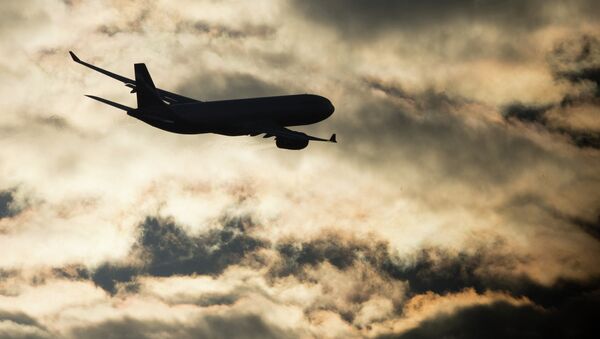MOSCOW, January 10 (Sputnik) – With rising global temperatures, airlines will have to bring in a few important changes into the aviation industry, such as putting weight restrictions on planes or extending runways at airports, as departing planes will find it harder to reach enough speed to take off during hot summer days, according to a climate scientist Ethan Coffel who presented his new study at the American Meteorological Society’s annual meeting on January 8.
Weather is the most significant factor that affects aircraft operations, accounting for up to 70 percent of passenger delays and costing airlines hundreds of millions of dollars annually. The increasing number of summer days with extremely high temperatures will negatively affect aircraft performance, leading to weight restrictions.
Projecting under the worst-case greenhouse gas emission scenario, the number of weight-restricted days will increase between 50 to 100 percent by 2050 for airports in Denver, New York City, Phoenix and Washington. In turn, this will amounts to a roughly 25 percent reduction in passenger and cargo weight, Science News says.
Airports can try to solve the problem by extending runways, however, that would be costly and not viable for some urban airports, which have limited available land. Study suggests that most likely airlines will start to carry less passengers and less cargo per flight, as well as raise their prices to compensate their losses.
Heavily loaded flights may be restricted from flying during the hottest parts of the day. The aviation industry should start considering the effects of climate change on aircraft operations “sooner rather than later” in order to construct loss-reducing adaptation plans, the study concludes.
What's Earth's fate due to #global #warming? Here's what the latest #UN report says. http://t.co/UvxWXIBx2Q pic.twitter.com/SPaar5SVQX
— Nimblesense (@Nimblesense) 8 декабря 2014
According to scientists, global temperatures are currently on rise. A number of regions within the United States are experiencing more than 50 days of severe heat, according to a study published on Nature Climate Change.


